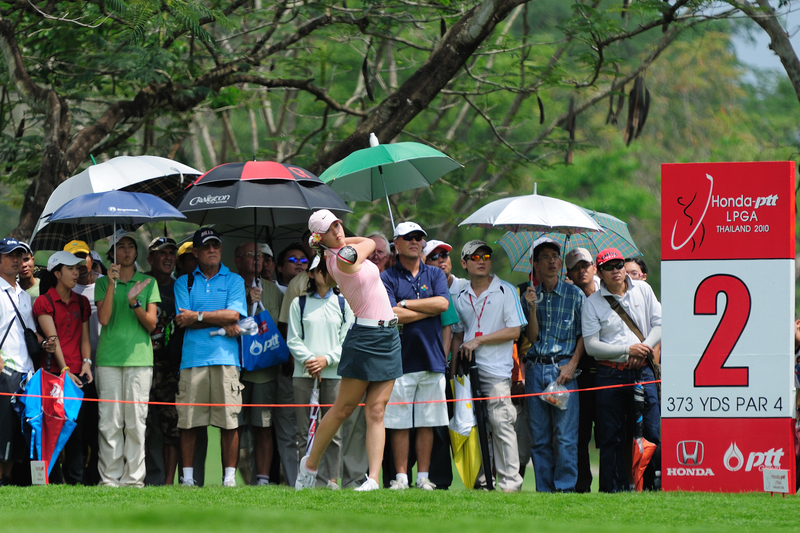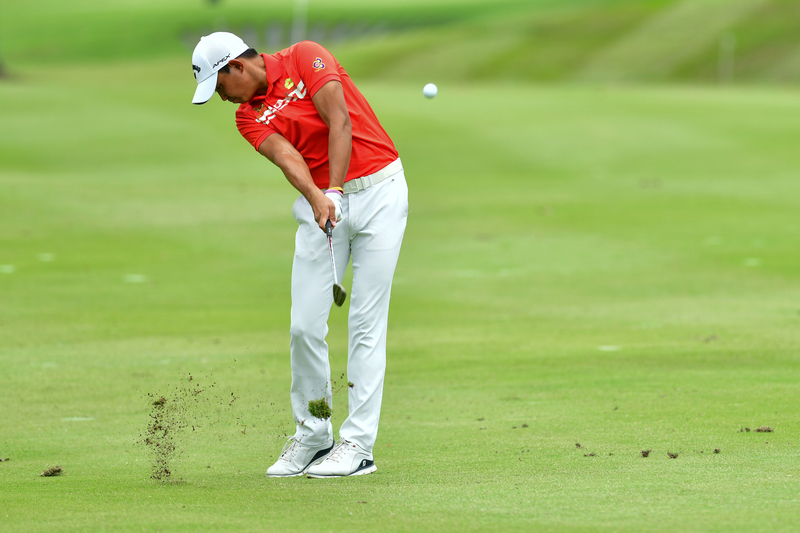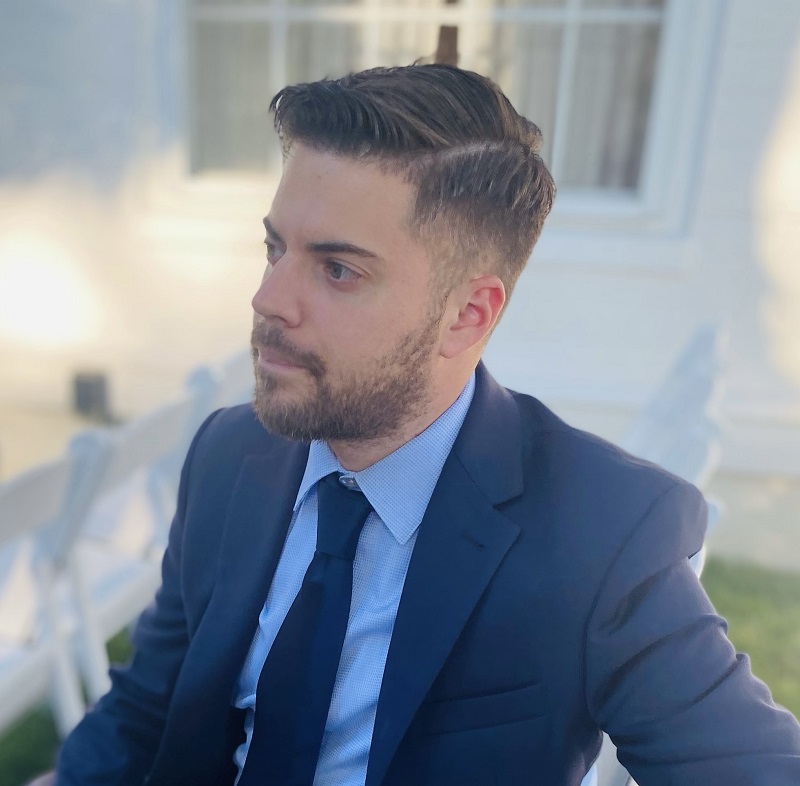Last updated on May 26th, 2023 at 04:34 pm
On a golf course during a tournament, you will often hear something yell the golf term “fore” right after the shot. Yelling out fore helps alert players and spectators of an oncoming golf ball.
So, what is the history of fore in golf, how fast are golf shots, is there a penalty for not saying it, and more?
Here is the complete breakdown of what a fore mean in golf.
How Did Fore Come into Golf?
Like anything in golf, where phrases come from is a bit of a mystery. The phrase fore, for example, is an old Scottish saying that meant lookout ahead. A forecaddie’s role in golf was to determine the ball’s placement during a match, and the golfer would yell that out to them to be on the lookout for where the ball was when they hit it.
Another theory pertains to how the military would use the phrase. The phrase “beware before” was meant for the artillerymen on the front lines to duck and cover during battle. It was shortened down to the phrase fore since that was a bit too long to say.
Why is Fore Shouted in Golf?
Yelling out the phrase “fore” after a golf shot loudly alerts fans and players to be on the lookout for a traveling golf ball. For example, an errant shot that won’t land on the fairway must warn everyone that an incoming ball might be coming towards them. Even if the ball will land on the fairway, it is proper to alert all golfers, especially if you hit it further than you expected.
Who Shouts out Fore in Golf?
During PGA and LPGA Tours, the golfer, caddie, or other officials are the ones who might yell out fore. Usually, you will find spotters throughout the sides of the greenway watching the flight of a golf ball in golf tournaments. Their job is to limit the number of lost balls that go out of bounds via wayward shots and alert the fans that they are coming towards them.
For amateur leagues with friends, the golfer is the one who should yell out fore. Sometimes, you will hear a golfer yell fore left or fore right, which means that the ball is traveling in that direction and won’t be on the greenway.
What Should You Do if You Hear Fore in Golf?
If you are on the fairway and hear fore out in the distance, you might naturally look up to find the ball. However, the better option is to duck and cover your face just in case. You create less of a target for the golf ball to hit you by ducking and covering your face, which is better than looking up in the sky for a white ball traveling over one hundred miles toward you.
Why Do Golfers Yell Fore When They Hit a Shot?
Golfers yell out fore when they hit a bad shot to alert players and fans of an oncoming ball. Sometimes, the shot is excellent, and you hit it further than you thought. By warning the other players down the fairway that a ball is coming towards them, they will appreciate the heads up.
Also, it is an excellent practice to yell our fore on shots that have a chance to be a hole-in-one. You alert any golfers playing the putting game to watch and not interfere if the ball lands near them. Simply alerting others on a potential hole-in-one, or even on a birdie shot, keeps them safe and allows your ball to land without any possible interference.
What Happens if You Don’t Yell Fore on a Shot?
Best golf etiquette recommends that someone yells “fore” during a shot. If you don’t, there is no penalty on your scorecard, but you are endangering others. For example, Rory Mcllroy in 2018 hit a golf ball and did not yell out fore. That ball hit three bystanders who needed medical attention.
Some private golf clubs might have their own etiquette rules in place if you violate not saying that phrase. For example, if you repeatedly hit the ball towards others and do not alert them, you might receive a warning. If you keep repeating this type of dangerous behavior, you might have your golf club membership removed.
What if You Yell out Fore and Still Hit Someone?
During the Ryder Cup in 2018, Brooks Koepka hit a wayward shot into the crowd that left a spectator blind. Brooks did yell our fore numerous times, but the speed of the ball made it difficult for the spectator to move. While there is no official penalty for hitting a spectator, severe injuries can happen, so every person must pay attention.
Also, most golf courses have signs and messages reminding players and spectators to be on the lookout for golf balls. This message is similar to what you will see when you attend a baseball game and balls going into the stands.
Do You Need to Yell Fore on Every Shot?
You only need to yell our fore if there is a chance that the ball could strike another golfer or spectator. For example, you don’t need to yell out the word fore during a putt. Likewise, you don’t need to yell the phrase out if you hit a grounder or the ball travels only a short distance, and nobody will be around it.
How Fast are Professional Golf Shots?
PGA players hit the golf ball close to two hundred miles per hour. The fastest shot during a tour championship in 2021 came in at 199.55 miles per hour from Bryson DeChambeau. The average ball speed came in at 170.44 miles per hour, which is why it is critical to alert other plays and spectators that a ball might be coming for them.
Conclusion: What Does Fore Mean in Golf?
In summary, yelling out fore during a golf alerts everyone that a ball might be coming towards them. Proper golf etiquette requires that the golfer or another person yells that phrase out clearly to warn everyone that a ball might be traveling their way.
Golf balls, especially ones from professionals, can launch at close to two hundred miles per hour. By knowing that, everyone on the golf course should always be listening for the phrase fore. If you hear someone yell fore, you should cover your face and duck instead of looking up.
Similar Posts:
Why Do Golfers Wear One Glove?
What is a Shotgun Start in Golf?
How to Clean Golf Clubs Properly
Greg Kristan, owner of The Stadium Reviews, LLC and TM Blast, LLC, brings his extensive experience visiting over half of the MLB ballparks, along with numerous MLS, NHL, NBA, and NFL venues, to provide in-depth coverage on the bag policy, food options, and parking. He has also been interviewed about his experiences on several sports podcasts.











